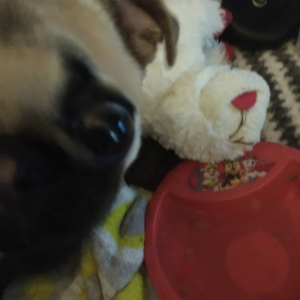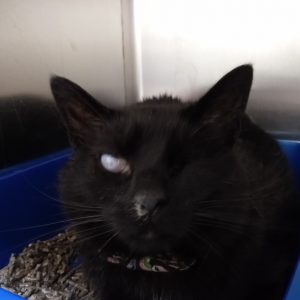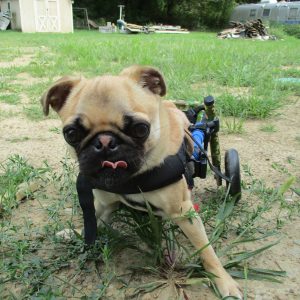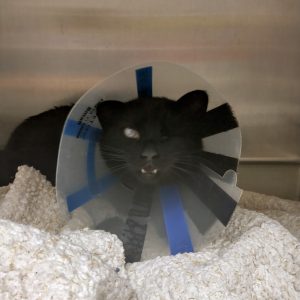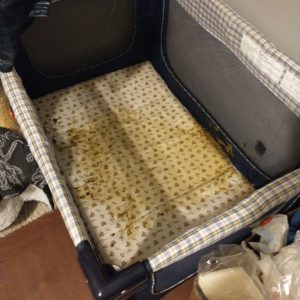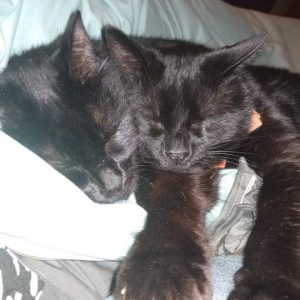Bifford’s “Tuna Tales” Part I
Can you imagine this sweet, genuine, affectionate, absolute pure face being returned to the cat shelter three separate times? THREE?!
Image him after return to the shelter #1 (the family was “going on vacation and did not want to be bothered with Bifford anymore, as per their surrender form) as he is placed back into the “general population” of other cats equally awaiting their forever homes as Bifford watches the doorway…patiently waiting for his “people” to return to get him. As the tock ticks by with each minute Bifford’s heart sinks just a little more as eventually he realizes they are not coming back for him. They tossed him away as if he was some disposable, inanimate object without a care in the world. Bifford perks up every single time the doorknob twists as he waits with anticipation for it to be “his people” only to be disappointed every single time.
Top that off with the fact that Bifford is not as fast nor nimble as the other cats so every time he attempts to bobble into the litter box and concentrate with all of his might, every time its “feeding time” and the large bowls of kibble are placed for a “come and get it” meal time, every time a prospective family enters the room he is promptly knocked over by the swarms of other eager cats, bullied by some of the “top dogs” of the room and becomes more reclusive — hiding in the corner of the room where he felt most safe with the wall to his back and his eyes always watching to ensure he is not randomly sought out by a room bully for a match that would be less than fair of a fight.
This is why I will forever stress to families to (if you are able to) volunteer to foster any prospective adoptive pets! Bifford would (sadly) not have stuck out in a room full of eager cats that maul you in affection as soon as you hit the shelter doorway, meowing and rubbing on your leg in an attempt to yell “pick me pick me! Couple this with the fact that he is a black cat (which sadly, statistically are not on the top favorites to adopt due to the reason they do not show up on “selfies” well — I will post this article reflecting this in an upcoming post).
Bifford came to me by chance. He was getting bullied at the shelter and was not really coming out from his hiding place. The shelter was concerned about him and felt he was simply not thriving in the shelter environment and felt a temporary foster home away from the shelter would do him some good and I am inclined to agree (look at the above photos of him at the shelter versus him at home — the results speak for themselves!).
I urge you to give those “not so eager” pets waiting for their forever homes in rescues, shelters and pounds a fair chance! Despite the fact that they are not mauling you in affection in a shelter setting does not mean they will not be a totally different pet once you get them into your home and give them an opportunity!
The 30 Something-Year-Old’s Constant Plight!
Having trouble affording veterinary care? Help is out there!

Especially with COVID-19 and these uncertain times it can happen to anyone! If you are having financial restraints and need help covering veterinary care/costs (or caring for your pet in general) there are programs out there to help you out! Check them out to see if you qualify!
Disclaimer: Bifford for President has NO connection to these organizations/programs and have no weight in each programs approval/denial process. If you have questions pertaining to a specific program please contact them DIRECTLY.
I also listed organizations in Ohio & PA since we are located in Northeast Ohio but also listed nationwide organizations that can also help!
- The Big Hearts Fund (Financial assistance for the diagnosis & treatment of canine/feline heart disease) bigheartsfund.org
- The Binky Foundation binkyfoundation.org
- Brown Dog Foundation (prescription medications) browndogfoundation.org
- Canine Cancer Awareness caninecancerawareness.org
- Cats in Crisis catsincrisis.org
- Alley Cat Allies alley.org
- Best Friends Animal Society bestfriends.org
- Care Credit carecredit.com
- Diabetic Pets Fund petdiabetes.net/fund/
- Extend Credit extendcredit.com
- Fairy Dog Parents fairydogparents.org
- Feline Outreach felineoutreach.org
- Feline Veterinary Emergency Asst. Program fveap.org
- Gracie’s Mission graciesmission.org
- PetsMart Charities petsmartcharities.org
- Pigger’s Pals piggerspals.org
- United Nations LifeLine Fund uan.org
- The Riedel & Cody Fund riedelcodyfund.org
- The Perseus Foundation (Cancer) perseusfoundation.org
- New York Save nysave.org
- Land of Pure Gold Foundation landofpuregold.org
- Humane Society of United States hsus.org
- The Dog & Cat Cancer Fund dccfund.org
- God’s Creatures Ministry Veterinary Charity all-creatures.org
- Help-A-Pet help-a-pet.org
- IMOM IMOM.org
- Magic Bullet Fund (Cancer-Specific) themagicbulletfund.org
- The Mosby Fund themosbyfoundation.org
- The Onyx & Breezy Foundation onyxandbreezy.org
- Paws 4 A Cure paws4acure.org
- Pet Food Bank petco.com
- Pet Food Stamps petfoodstamps.org
- The Pet Fund thepetfund.com
- Pets of the Homeless (pet food & veterinary care for homeless) petsofthehomeless.org
- RedRover Relief redrover.org
- Rose’s Fund rosesfund.org
- Shakespeare Animal Fund shakespeareanimalfund.org
- Top Dog Foundation “Bentley Grant” topdogfoundation.org
- ScratchPay ScratchPay.com
OHIO
- Angels for Animals: Canfield (Pet Food, Spay/Neuter Assistance) angelsforanimals.org
- The Bummer Fund: Columbiana, Mahoning & Trumbull Counties (Veterinary Assistance) bummerfund.org à Susan Sexton (330) 519-3152
- Applications, please fax to TESS TESSIER
- Humane Ohio: Toledo (Spay Assistance) humaneohio.org
- Jake Brady Memorial Fund (Veterinary Assistance) myjakebrady.com
- MedVet Good Sam Fund: Columbus & Cincinnati (Veterinary Assistance) medvetfoundation.org
- The Neuter Scooter: Multiple Locations (Spay/Neuter Assistance for Cats) neuterscooter.com
- Paws with Pride: Uniontown (Temporary Foster Program) pawswithpride.org
- Pet Guards Clinic: Cuyahoga Falls (Assistance for veterinary care, spay program & vaccines) petguards.com
- PetPromise: Columbus (Pet Food) petpromise.org
- Society for the Improvement of Conditions for Stray Pets: Kettering (Temporary Foster/Spay Assistance) sicsa.org
- Stop the Overpopulation of Pets: Mansfield (Spay Assistance) petfinder.com/OH130
PENNSYLVANIA
- Action for Animals Humane Society: Latrobe (Spay Assistance) members.petfinder.org/~PA60
- Animal Care & Assistance Fund (Veterinary Care) animalcarefund.org
- Animal Friends: Pittsburgh (Pet Food/Spay Assistance) thinkingoutsidethecage.org
- The Animal Rescue of Western PA (Veterinary Care) animalrescue.org/clinic
- Forgotten Cats, Inc.: Willow Grove (Spay/Vaccine Assistance) forgottencats.org
- Humane Society of Berks County: Reading (Food/Veterinary Assistance) berkshumane.org
- Humane Society of Westmoreland County: Greenberg (Spay/Vaccine Assistance) petfinder.come/hswcgbg
- Spay/Neuter Assistance Program Inc,: Harrisburg (Low Cost Spay) snapofpa.org
- Washington Area Humane Society: Pittsburgh (Spay/Veterinary) washingtonpashelter.org
- Western PA Humane Society: Pittsburgh (Spay/Veterinary) wpahumane.com
- Wilkes Barre Animal Hospital: Wilkes Barre (Spay- Cats) kathio.com/spayneuterinfo
Know of an organization/program that is not listed here? E-mail their information to us at PresidentBifford@gmail.com and we will update our list!
Meow As Fluff

A HUGE thanks to Caitlin McAuliffe at Meow as Fluff for this beautiful write up and video for Bifford’s cause! You can visit them (also be sure to “like” them on Instagram and Facebook, too!) At http://meow.af/ or more Bifford specifically at: http://www.meow.af/bifford
Meet The Handsome Wobbly Cat Who Was Adopted And Returned Three Times Before Finding The Perfect Forever Home!
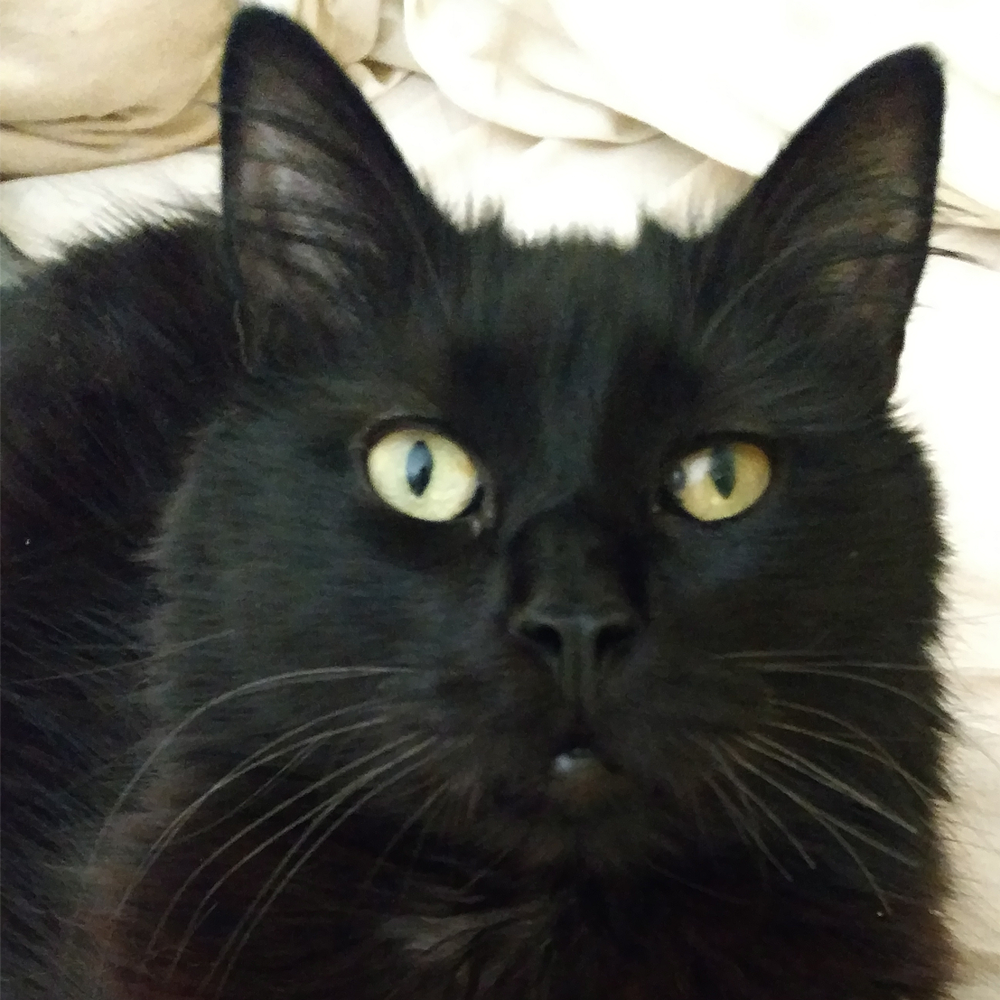
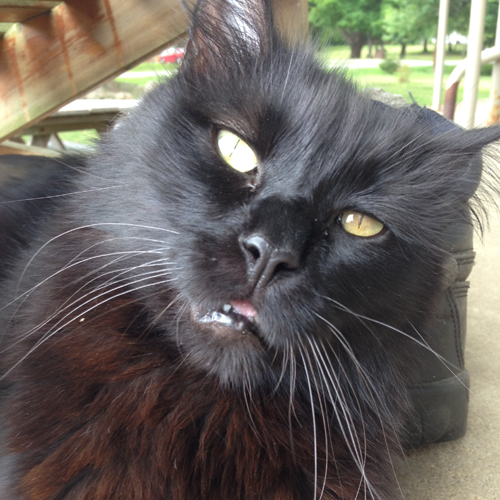
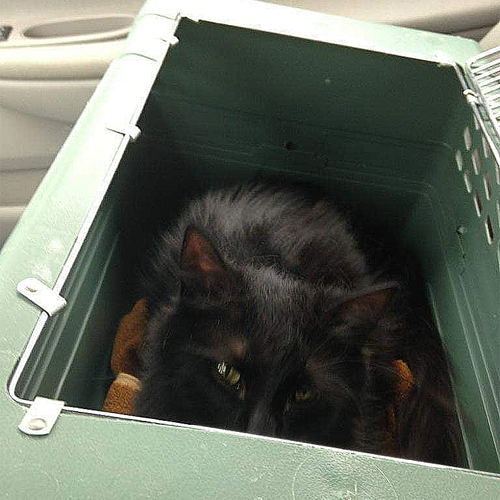
When Suzi Langer was asked to foster Bifford, a cat with cerebellar hypoplasia (CH), for the animal shelter near her home in Youngstown, Ohio, she didn’t have any experience caring for animals with special needs. However, when Suzi learned the fluffy black feline wasn’t thriving at the shelter, she reluctantly agreed to foster him.
“He was getting bullied and beat up on by the other cats, and he was depressed, lethargic, and not really eating,” remembers Suzi, so she picked him from the shelter in early 2014. “I opened the top of the worn green carrier to see two warm golden eyes staring back at me. Bifford sat there, quietly in the ‘turkey stance,’ and he seemed to almost be overwhelmed by his changing situation.”
However, when Suzi learned Bifford’s history, she quickly understood why he appeared uneasy. On October 9, 2011, Bifford and his litter mates were born with cerebellar hypoplasia, a non-progressive neurological condition that affects balance and coordination. “This may occur if a pregnant queen is vaccinated for feline distemper (FVRCP) using a ‘modified live virus’ vaccine,” explains Suzi, “or if the mother suffers trauma, malnutrition, or panleukopenia [a highly contagious viral disease].”
Sadly, when Bifford was just nine days old, he was rejected by his biological mother, so he was bottle fed by a good Samaritan. Due to his lack of coordination, the good Samaritan also assisted the wobbly kitten by helping him use the litter box and cleaning him, but she eventually surrendered Bifford to the shelter because she was unable to provide him with the extra care and attention she believed he required. “She claimed that he needed 24 hour around-the-clock care in order to survive,” says Suzi.The note that was attached to Bifford’s carrier when he was surrendered
While Bifford was eventually adopted, he was returned to the shelter by his first family because they were going on vacation. His second family was unhappy because although he was able to use the litter box on his own, he didn’t cover up the mess, so they also returned Bifford to the shelter. He was adopted by yet another family and was returned to the shelter for a third time, but not before he was subjected to profound cruelty.
“The ‘owners’ had attempted to lock Bifford in an empty hot tub because they wanted him to ‘die with dignity’ and ‘contain the mess,’ ” explains Suzi. “It breaks my heart to think about Bifford patiently waiting for his ‘family’ to return and with each passing minute he slowly loses hope that they were coming back for him.”
Fortunately, within moments of bringing Bifford home on May 9, 2014, Suzi fell in love with the adorable special needs cat, and she and her husband decided to adopt him! “Bifford was a clumsy, affectionate, verbal little dude and had no reservations with enjoying the ‘clingy’ life attached to his mama’s hip!” says Suzi. Plus, Suzi knew being an adult black cat with special needs would make it harder for Bifford to find a forever home, and she was confident she and her husband would be able to provide him with the care, time, and attention he needed to thrive.
Initially, it was difficult for Suzi to resist the urge to coddle Bifford, especially because cats with cerebellar hypoplasia have issues with balance and coordination that frequently cause them to stumble and fall. However, as it became apparent Bifford was unlikely to actually injure himself, Suzi eventually realized she didn’t need to be quite so protective. “Just like toddlers, sometimes it is OK to let them stumble and fall,” says Suzi. “Of course, be there for them always, but it is OK to give positive reinforcement that it is OK to stumble and sometimes fall just as long as they always get back up and keep on truckin’!”
Nearly seven years later, Bifford is doing better than ever, and while he still wobbles when he walks, he’s incredibly happy and active. He’s also surprisingly self-reliant, which Suzi believes is a product of the more laid-back approach she’s taken towards Bifford’s cerebellar hypoplasia. “Today Bifford is more independent, able to climb into bed at night with us, and overall be a more self-reliant little dude,” explains Suzi, “and I believe that’s partly due to the fact that I am not a ‘helicopter’ mother and constantly swarming over him.”
However, this doesn’t mean Suzi and Bifford don’t have an extremely close relationship. In fact, there’s nothing this affectionate boy enjoys more than cuddling with his mom and dad, but he also adores spending supervised time outside during the spring and summer. “He never goes outside unattended and always wears a brightly colored harness with a leash on it,” says Suzi. “He loves to try and catch lightning bugs, ‘catching’ flowers blowing in the breeze, and all around running and gallivanting in our large open field next to our home.”
Even though it’s very obvious Bifford has an excellent quality of life, Suzi has encountered people, including a vet tech at a local clinic, who mistakenly believe cats with cerebellar hypoplasia are suffering and should be euthanized. She’s also found other common misconceptions are that cerebellar hypoplasia is contagious and that it gets worse over time, neither of which is true.
“These amazing babies are just as capable of living a long, happy, healthy life with minimal ‘special requirements,’ ” says Suzi. “Cerebellar hypoplasia animals — and many other specially-abled animals — are affectionate, strong-willed, resilient, amazing beings and we as humans can gain a thing or two by adopting these special babies and watching them go!”
After all, Suzi speaks from experience, because since adopting Bifford in 2014, she and her husband Michael have opened their home to a variety of special needs pets, including Bart, a one-eyed, partially blind cat; Roscoe, a Rat Terrier with epilepsy; and Maggie Mae, a deaf Pug who recently passed away from transitional cell carcinoma. “They are well-loved and well-cared for and do not require any extra care at home — just a little patience and understanding!” says Suzi.




